JAMILA, MARC & MARIA
A group of people passionate about life below water and life on land, who came together to form the voluntary organisation, Os Om Havet. The three young divers tell us the story behind their organisation and all the incredible ways to build an entire community of people who want to fight pollution!
ORDINARY PEOPLE, DOING EXTRAORDINARY THINGS
Jamila, Marc and Maria all have an academic background in Biology. Marc is a marine biologist, primarily working with seals, porpoises and other marine mammals, while Maria specialises in macro ecology, studying the connections between different ecosystems. Maria’s Master thesis focuses on invasive species and bird migration, looking for patterns affected by climate change and loss of biodiversity. Jamila specialises in cell biology within neuroscience, and how brain cells are associated with different brain diseases. Their diverse backgrounds bring together an understanding of the different aspects of ocean life.
“Marc knows a lot about the ocean and how this specific environment works. Maria can understand the bigger picture and how the different issues have an impact on the entire ecosystems. Jamila can, with a background in cell biology, understand how microplastics, nanoplastics, pollution, toxic compounds from waste and endocrine disruptors in the environment will affect the organisms in the ocean.”
Climate change and sustainability have been important to the three for a long time and have been central in the experiences that shaped them through conservation projects, but also the experiences that brought them together.
ABOUT OS OM HAVET
Os Om Havet is a voluntary organisation with a focus on creating a healthy marine environment. It aims to mobilise divers and ocean enthusiasts in the fight against ocean pollution and inspire a more sustainable everyday life. After spending six months together as exchange students in Australia, Jamila, Marc and Maria founded Os Om Havet.
“We all studied Biology at the University of Tasmania and here we got introduced to all the issues surrounding marine debris. Maria took a course where she dissected birds and found plastic in their stomach and Marc and Jamila took a course on how hormone disruptors could affect threatened species and the entire ecosystem.”
Upon completing their exchange term, the three friends travelled around in Australia together. While on a very warm bus ride on the east coast of Australia, they decided to do something about the issue with trash in the ocean.
“We knew that 70% of the trash in the ocean ends up at the bottom of the sea, so we saw an opportunity to combine our favorite hobby of diving with doing something good for the ocean. But there was nowhere we could volunteer, so we decided to do something ourselves and that is how Os Om Havet started.”
Running an NGO was not an easy task, so they sought help with legal issues, communications, finances, etc. from others who wanted to join the mission. Currently, Os Om Havet is supported by a group of fourteen volunteers, who are all ocean enthusiasts and volunteer their time for a healthy ocean environment. The volunteers primarily host cleanup events, as well as lectures for schools and kindergartens, diving centres, and other interested entities. With these activities, they hope to motivate people and show that doing something good for the environment can also be fun and quality time spent with friends and family.
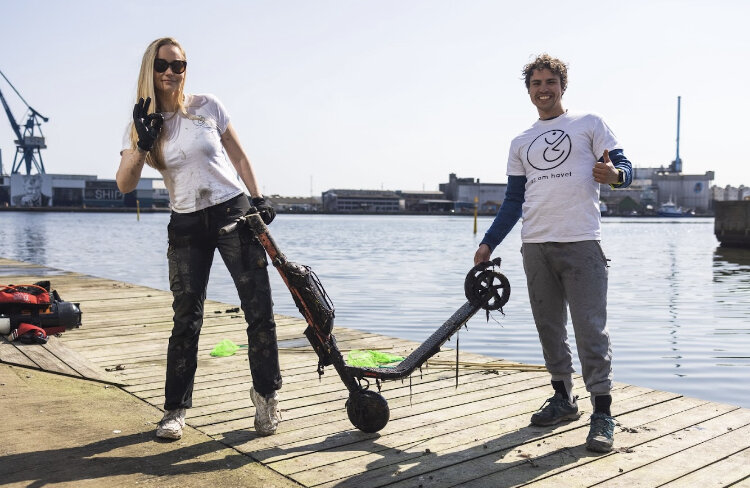
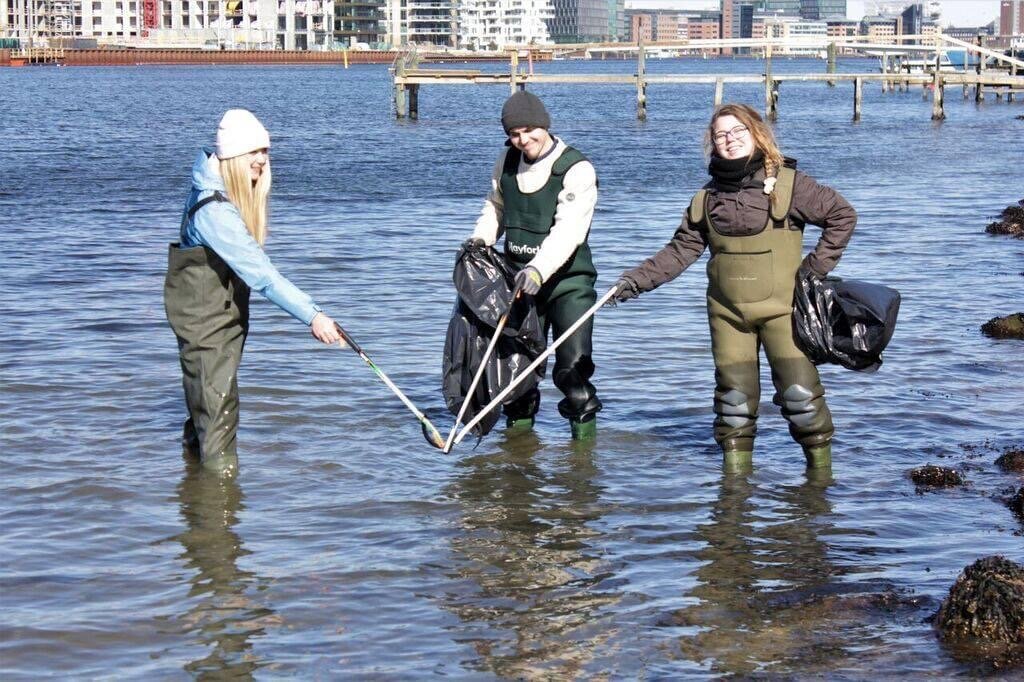
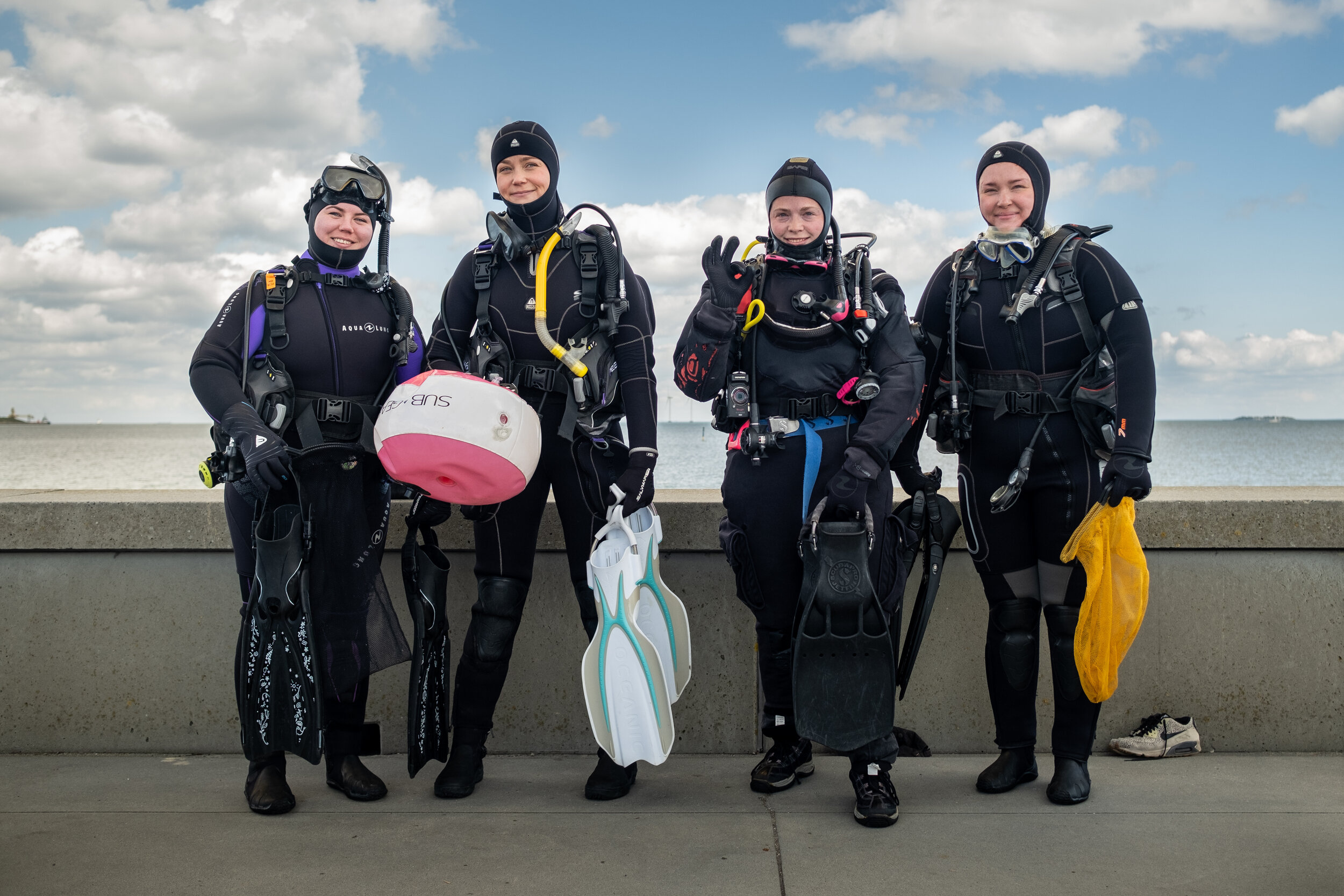
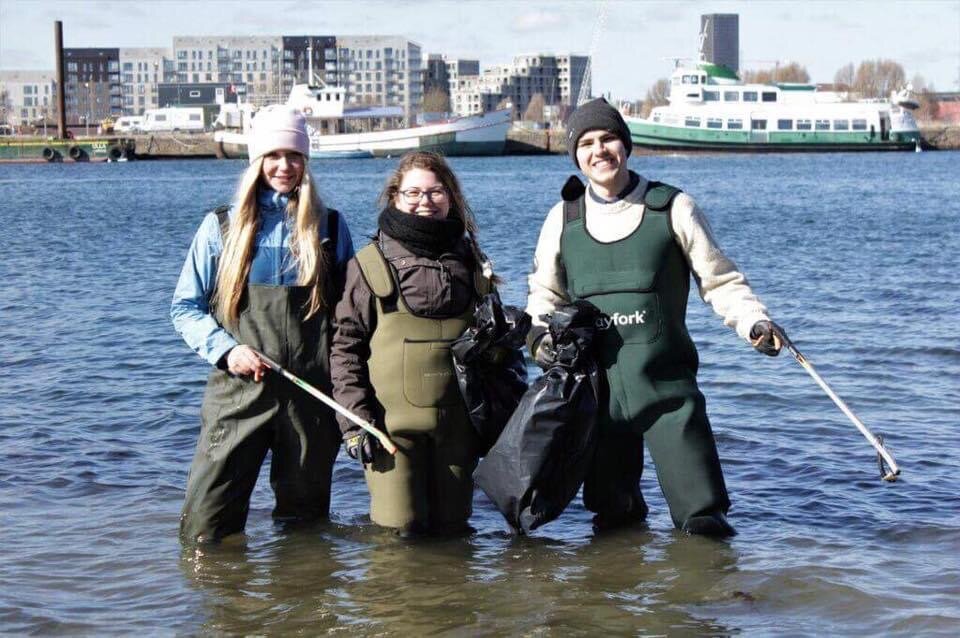
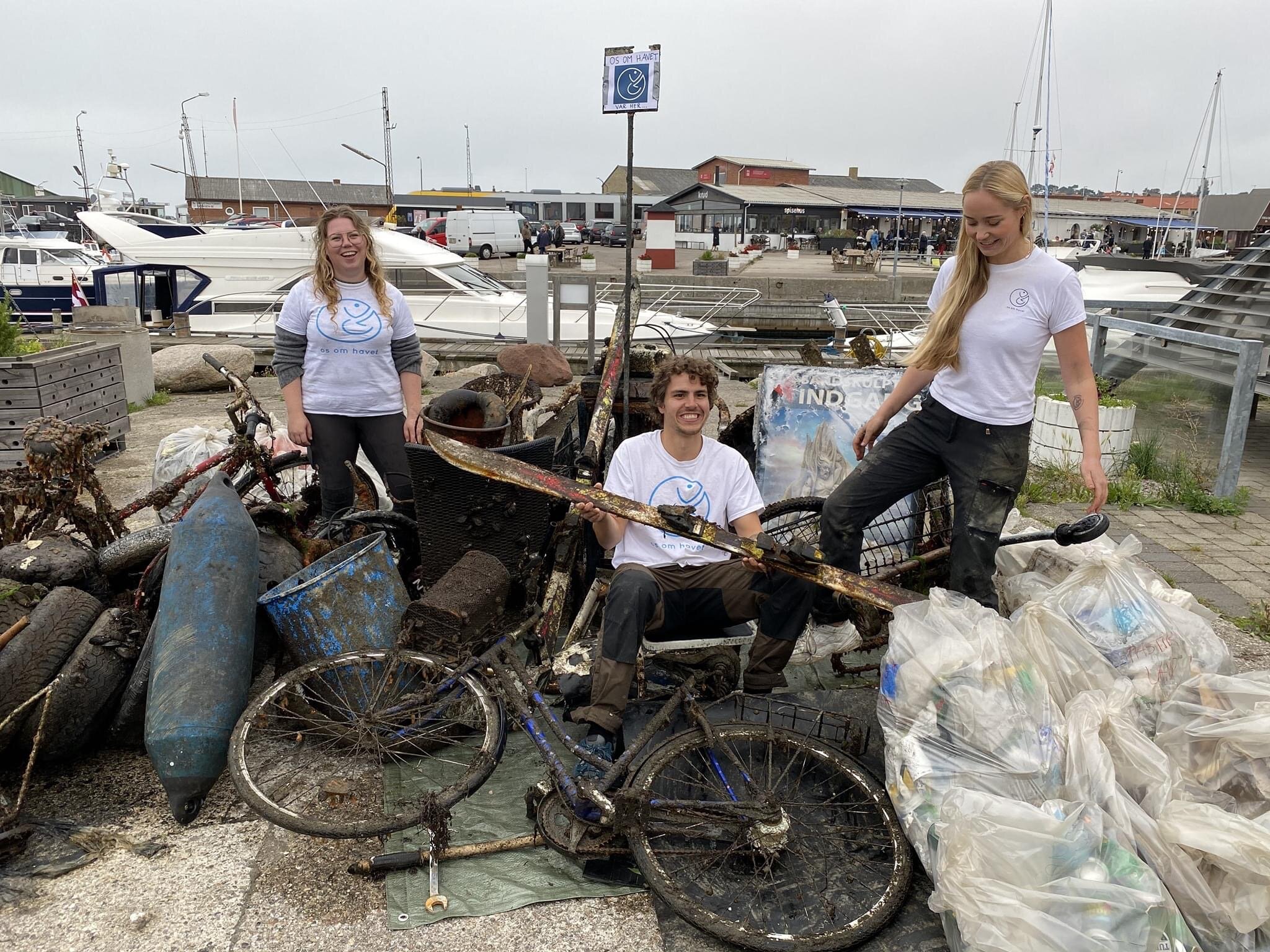
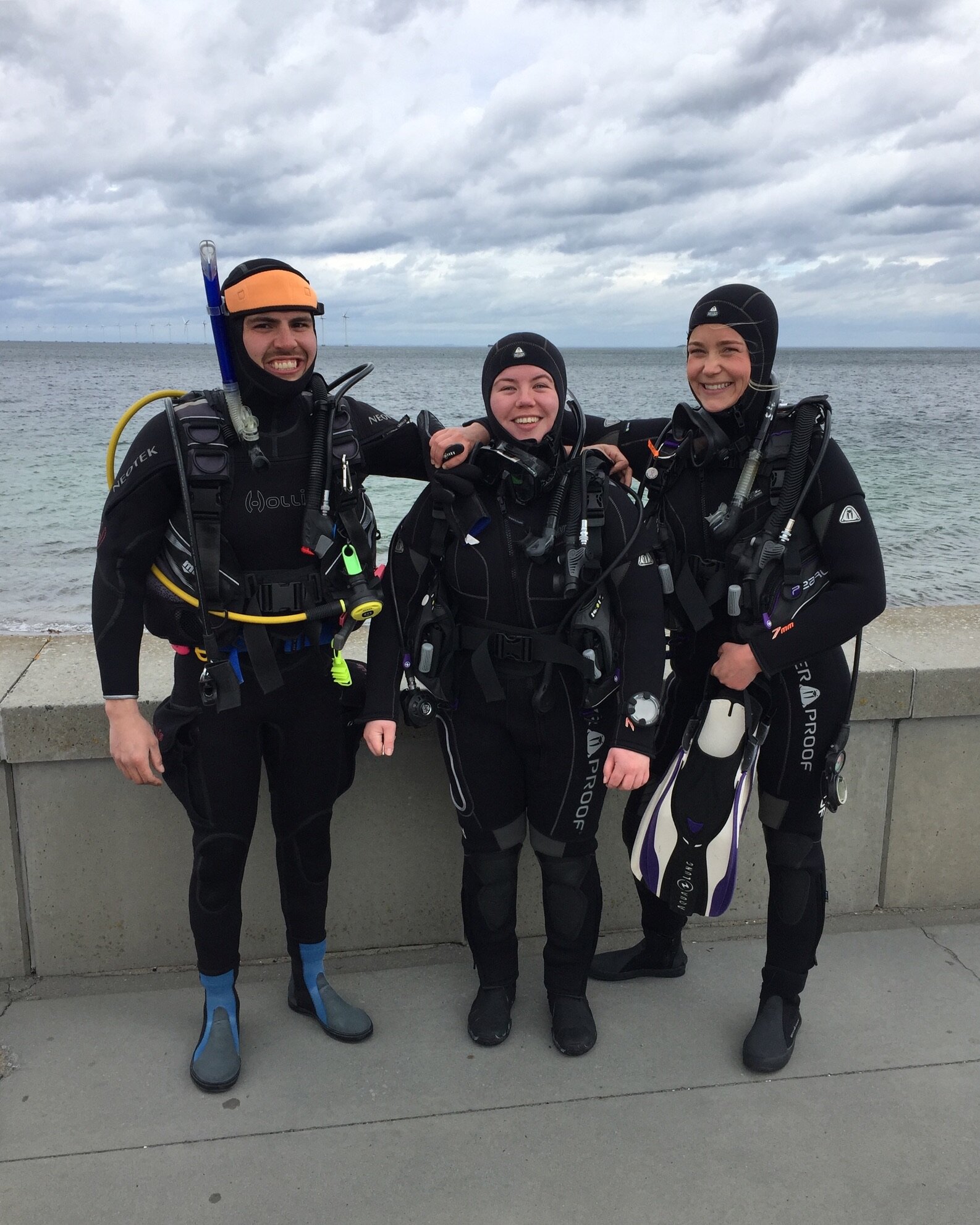
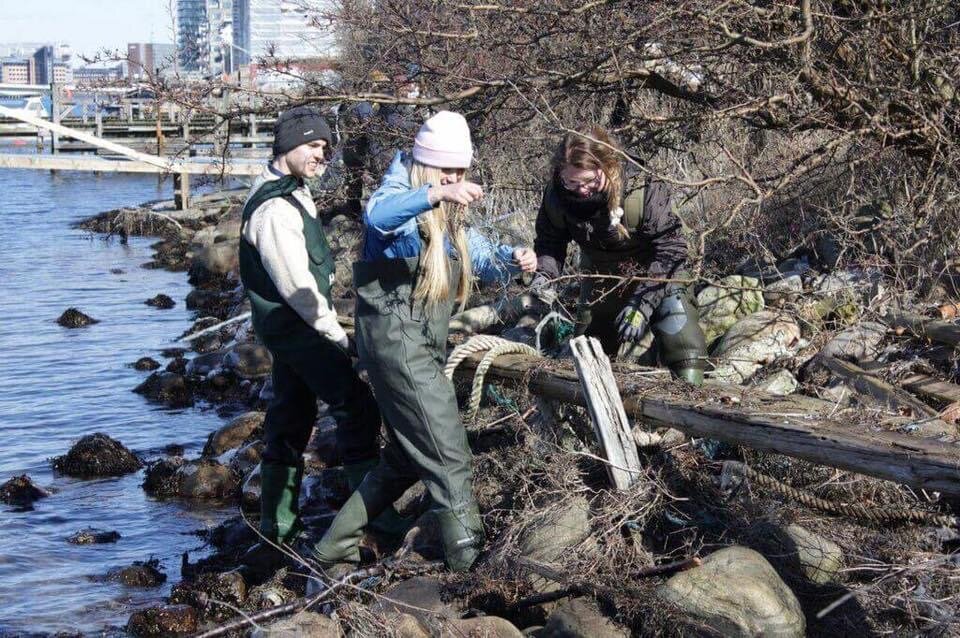
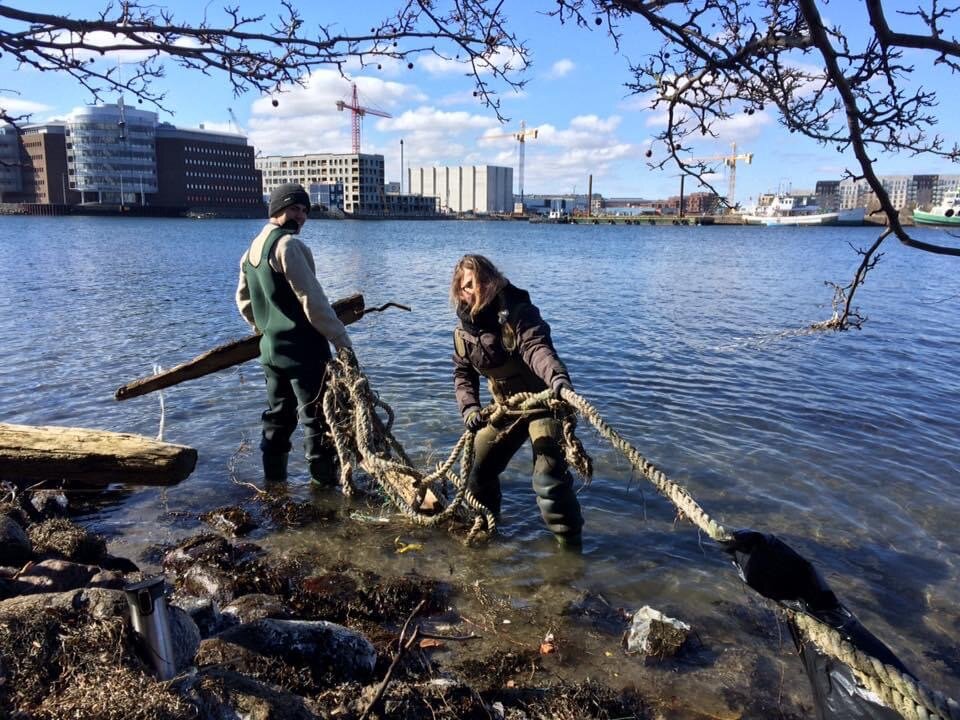
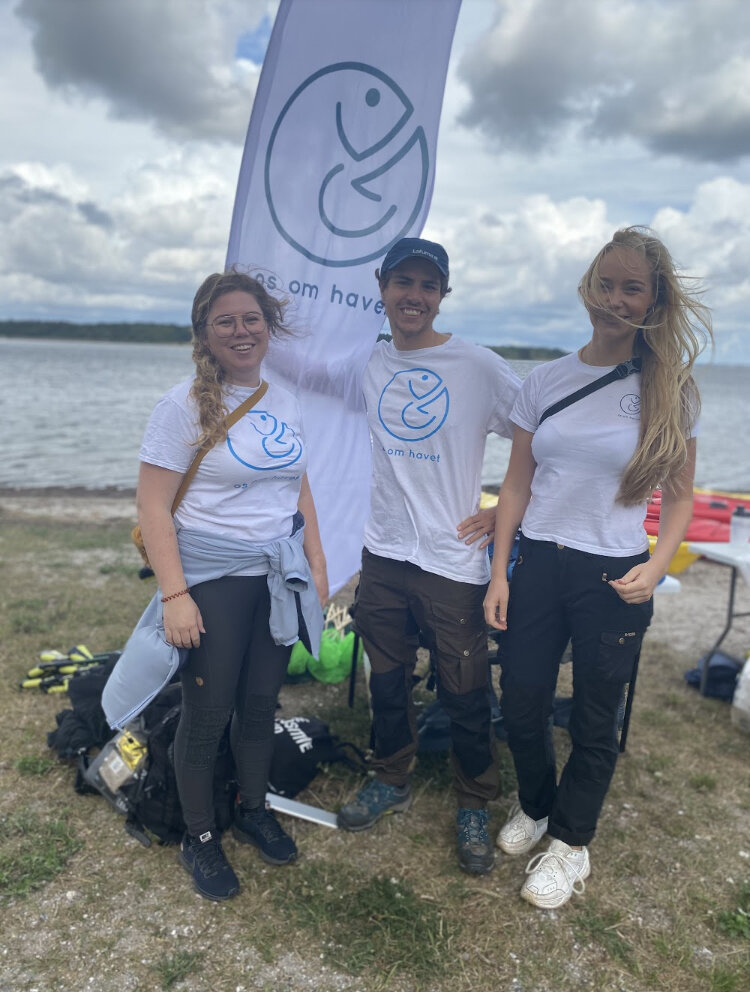
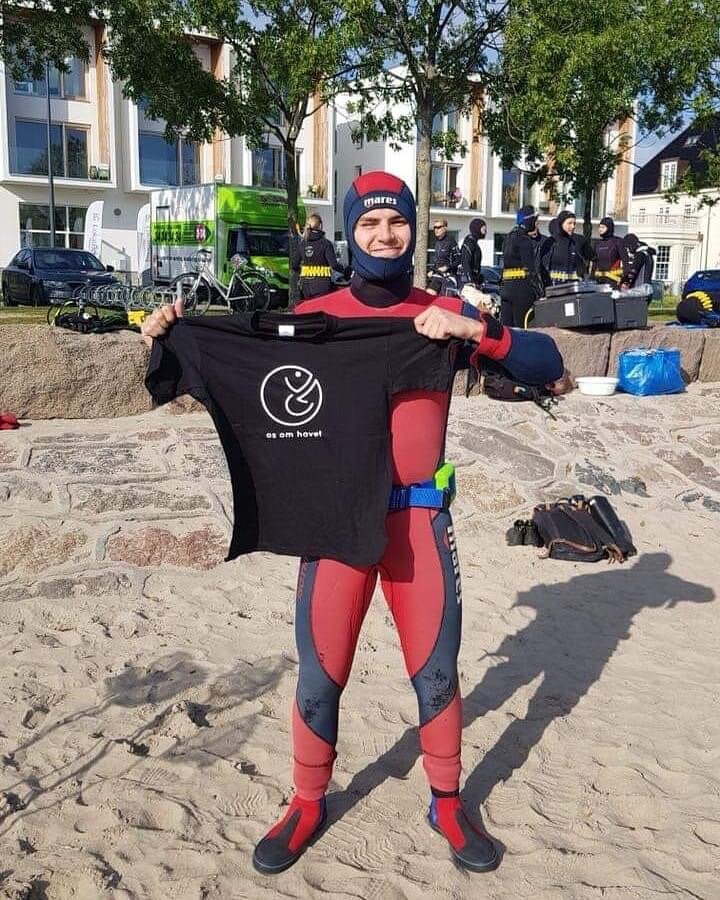
INSPIRED AND INSPIRING
Os Om Havet organises cleanup events to engage people of any age - volunteers, divers, people in kayaks or SUP boards in ocean litter pickups. Through awareness raising, they also aim to promote more sustainable lifestyles in general.
“People often think that the issue is not that big here in Denmark, because one cannot see what is under the surface or what is at the bottom of the sea. But during these events, people start realising how big the issue is when they can see how much is actually found in just a couple of hours. We hope this will make people more aware of the problems and think about how they could help in preventing all this trash from entering the ocean to begin with.”
The three founders try to do everything they can to be as sustainable as possible. They look at sustainable procurement of cups, textiles and items when it comes to organisational meetings and events, as well as sustainable food choices. “We only eat vegetarian/vegan food at our meetings, the cups we drink from at events are biodegradable, our T-shirts are made from recycled plastic and organic cotton and are produced in Denmark, we try to avoid single use and we always try to find the best sustainable solutions and alternatives.”
“This is both something we think about as an organisation, but also in our personal lives. Within our volunteer group, tips for sustainable choices and ways to protect the ocean are often shared. In this way we can inspire each other even more!”
TAVAHA
For Jamila, Marc and Maria, the ocean has two separate but connected, roles in their lives. It is their own ‘playground’, and a place to relax, dive, snorkel, kayak, fish, and forget about stress and be calm. “When you dive you are weightless and can only hear your own breathing - it is a bit like “active meditation”. At the same time, as biologists, they know the importance of the ocean as an ecosystem, and thus feel a professional responsibility to share their knowledge and do something to protect the marine environment.
“We should all take care of the ocean, if everybody tries just a little bit, we can do a lot together.”
Our Ocean Heroes’ own heroes are all the volunteers in Os Om Havet and ever single person at their events, who spend hours of their day to leave a cleaner ocean for everyone.
THE POWER OF A COMMUNITY IN SOLVING ENVIRONMENTAL CHALLENGES
“People have to become aware of the sustainability issues we are facing today, but we don’t think we can change the world by telling people what they are doing wrong. We instead want to inspire and motivate people to take care of the ocean and nature in general.”
Focusing on positive messaging and the idea that we, as consumers, have the power to change behaviours - our own and others’, is a key idea behind what our Ocean Heroes are trying to do. They feel that this power can also be translated into active citizenship, voting for those who care about the environment and supporting community groups or NGOs that promote a fight against pollution. The more mobilised these groups are, the better picture we can paint that people demand change and action.
“Don’t forget how much power you have as an individual! It can be difficult to make people change their habits, especially if they have to stop doing something they enjoy, e.g. eating less meat, traveling less, and buying sustainable, sometimes more expensive clothes. But that is why we want to show people that it can be fun to do something good for the environment!”

